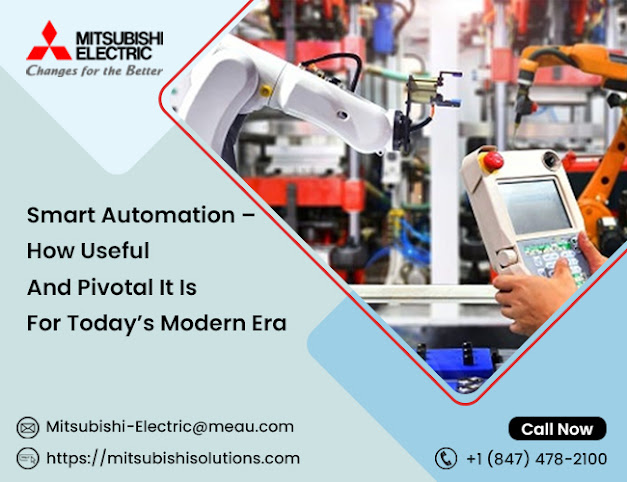A Deep Dive into Robotic Process Automation in Factory Environments
In the ever-evolving landscape of manufacturing, technological advancements are reshaping the way factories operate. Among these transformative technologies, Robotic Process Automation (RPA) stands out as a key player in streamlining processes, enhancing efficiency, and revolutionizing factory environments. Let's take a deep dive into the various aspects of RPA, including collaborative robot applications in manufacturing, industrial automation solutions for production lines, automated assembly line equipment, precision automation systems for manufacturing, and the notable contributions of Mitsubishi Electric to this innovative realm.
Collaborative Robot Applications in Manufacturing
The era of solitary machines dominating factory floors is evolving into a collaborative ecosystem where robots work alongside human counterparts. Collaborative robot applications in manufacturing, often referred to as cobots, are designed to work collaboratively with humans, enhancing productivity and safety. These robots handle repetitive tasks, allowing human workers to focus on more complex, creative, and value-driven activities.
Industrial Automation Solutions for Production Lines
Robotic Process Automation is a cornerstone of industrial automation solutions for production lines. The integration of robots into manufacturing processes optimizes efficiency, reduces human error, and accelerates production cycles. Automated assembly line equipment, guided by RPA, ensures precision, consistency, and speed in tasks ranging from product assembly to packaging.
Robotic Process Automation in Factories
At the heart of the manufacturing revolution is the implementation of Robotic Process Automation in factories. RPA extends beyond the physical realm of production lines, infiltrating administrative tasks, data analysis, and decision-making processes. By automating routine and time-consuming tasks, RPA in factories unlocks new levels of operational efficiency, ultimately contributing to the bottom line.
Automated Assembly Line Equipment
Automated assembly line equipment, driven by RPA, brings a paradigm shift to the manufacturing landscape. From intricate electronic components to large-scale automotive parts, robots equipped with precision automation systems for manufacturing ensure that assembly processes are not only efficient but also maintain the highest standards of accuracy and quality.
Mitsubishi Electric: Pioneering Innovation in Automation
In the realm of advanced automation and robotics, Mitsubishi Electric stands out as a global leader, consistently pushing the boundaries of innovation. With a commitment to delivering cutting-edge solutions, Mitsubishi Electric plays a pivotal role in shaping the future of factory automation. Their extensive portfolio includes collaborative robot applications, industrial automation solutions, and precision automation systems that cater to the diverse needs of modern manufacturing.
Benefits and Challenges of Robotic Process Automation
While the benefits of RPA in factories are undeniable, it's essential to acknowledge the challenges associated with its implementation. The initial investment, training requirements, and the need for seamless integration into existing systems pose challenges for manufacturers. However, the long-term gains in efficiency, cost-effectiveness, and overall productivity far outweigh these initial hurdles.
Conclusion: Navigating the Future of Manufacturing with Mitsubishi Electric
As factories navigate the complexities of modern manufacturing, the adoption of Robotic Process Automation emerges as a transformative force. From collaborative robot applications to precision automation systems, the integration of automated assembly line equipment is reshaping the very fabric of production processes. In this era of Industry 4.0, Mitsubishi Electric stands as a beacon of innovation, providing state-of-the-art solutions that propel factories into the future of manufacturing.
The deep dive into Robotic Process Automation reveals its profound impact on factory environments. As we witness the seamless collaboration of robots and humans, the optimization of production lines, and the precision in automated assembly, it becomes evident that RPA is not just a technological advancement but a catalyst for a manufacturing revolution. Embracing the future of manufacturing means embracing the solutions offered by industry leaders like Mitsubishi Electric.




Comments
Post a Comment